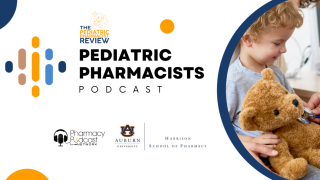U.S. NIH Turbo Charges India’s COVID-19 Vaccine

An adjuvant developed with funding from the National Institutes of Health (NIH) has contributed to the success of the Covaxin COVID-19 vaccine, which roughly 25 million people have already received in India and elsewhere.
Adjuvants are substances formulated as part of a vaccine to boost immune responses and enhance a vaccine’s effectiveness. Covaxin was developed and is manufactured in India by Bharat Biotech, stated the NIH on June 29, 2021.
Anthony S. Fauci, director of the National Institute of Allergy and Infectious Diseases (NIAID), said in a released press statement, “I am pleased that a novel vaccine adjuvant developed in the United States with NIAID support is part of an efficacious COVID-19 vaccine available to people in India.”
The adjuvant used in Covaxin, Alhydroxiquim-II, was discovered and tested in the laboratory by the biotech company ViroVax LLC of Lawrence, Kansas, with support exclusively from the NIAID Adjuvant Development Program. The adjuvant comprises a small molecule attached in a unique way to Alhydrogel, a substance frequently called alum that is the most commonly used adjuvant in vaccines for people.
Alhydroxiquim-II travels to lymph nodes, where the small molecule detaches from the alum and activates two cellular receptors. These receptors, TLR7 and TLR8, play a vital role in the immune response to viruses.
Alhydroxiquim-II is the first adjuvant in an authorized vaccine against infectious disease to activate TLR7 and TLR8. In addition, the alum in Alhydroxiquim-II stimulates the immune system to search for an invading pathogen.
Molecules that activate TLR receptors stimulate the immune system powerfully, but the side effects of Alhydroxiquim-II are mild. This is because, after Covaxin is injected, the adjuvant travels directly to nearby lymph nodes, which contain white blood cells that play an essential role in identifying pathogens and fighting infection.
Consequently, only a small amount of Alhydroxiquim-II is needed in each dose of vaccine, and the adjuvant does not circulate throughout the body, thereby averting more widespread inflammation and undesirable side effects.
Covaxin comprises a disabled form of SARS-CoV-2 that cannot replicate but still stimulates the immune system to make antibodies against the virus.
Published results from a Phase 2 trial of the vaccine indicate that it is safe and well-tolerated. Safety data from a Phase 3 trial of Covaxin in 25,800 participants in India will become available later this year.
Meanwhile, unpublished interim results from the Phase 3 trial indicate that the vaccine has 78% efficacy against symptomatic disease, 100% efficacy against severe COVID-19, including hospitalization, and 70% efficacy against asymptomatic infection with SARS-CoV-2, the virus that causes COVID-19.
Two studies of blood serum from people who had received Covaxin suggest that the vaccine generates antibodies that effectively neutralize the B.1.1.7 (Alpha) and B.1.617 (Delta) variants of SARS-CoV-2, first identified in the United Kingdom and India, respectively.
The NIAID Adjuvant Program has supported the research of the founder and chief executive officer of ViroVax―Sunil David, M.D., Ph.D.―since 2009. His work has focused on searching for novel molecules that activate innate immune receptors and developing them as vaccine adjuvants.
The collaboration between Dr. David and Bharat Biotech International Ltd. of Hyderabad was initiated during a 2019 meeting in India coordinated by the NIAID Office of Global Research under the auspices of NIAID’s Indo-U.S. Vaccine Action Program.
The NIAID conducts and supports research at the NIH throughout the United States and worldwide to study the causes of infectious and immune-mediated diseases and develop better means of preventing, diagnosing, and treating these illnesses.
The National Institutes of Health is the nation's medical research agency, includes 27 Institutes and Centers, and is a U.S. Department of Health and Human Services component. NIH is the primary federal agency conducting and supporting basic, clinical, and translational medical research and is investigating the causes, treatments, and cures for both common and rare diseases. For more information about NIH and its programs, visit www.nih.gov.
Note: Indian Council of Medical Research announced on April 22, 2021, Covaxin offers protection against various SARS-CoV-2 mutations. However, the WHO has not Authorized Covaxin as of July 12, 2021.
PrecisionVaccinations publishes research-based news.
Our Trust Standards: Medical Advisory Committee
























